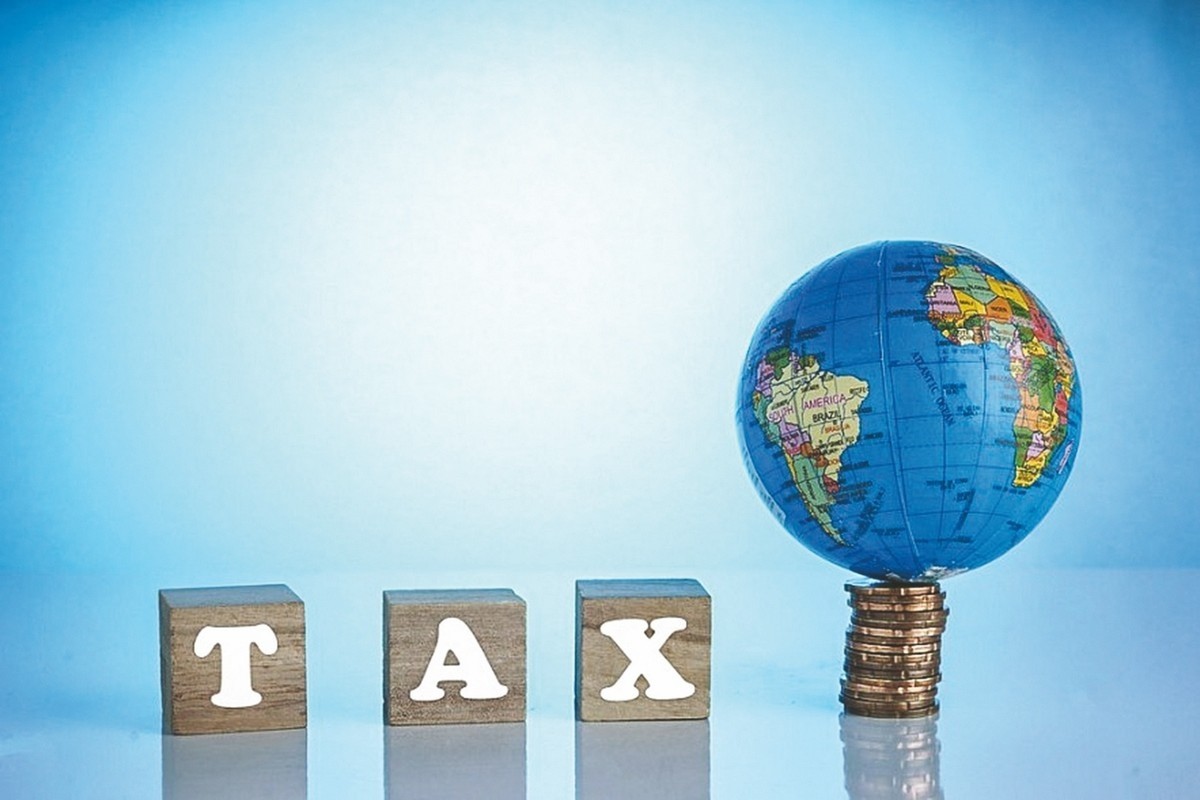 |
Applying a global minimum tax will bring new opportunities to Vietnam, such as increasing budget revenue from additional tax collection and limiting tax evasion, tax avoidance, and transfer pricing. (Source: VOV) |
At the 6th Session of the 15th National Assembly , delegates all agreed that it is necessary to issue a Resolution on the issue of applying additional corporate income tax according to regulations against global tax base erosion (global minimum tax).
Open up new opportunities
The global minimum tax is an agreement reached by G7 countries in June 2021 to combat multinational corporations shifting profits to low-tax countries to avoid taxes, effective from January 1, 2024. The tax rate will be 15% for multinational enterprises with a total consolidated revenue of 750 million euro (about 800 million USD) or more in two of the four most consecutive years.
The UK, Japan, South Korea, and the European Union (EU) will impose the tax in 2024. Vietnam also plans to impose the tax at the same time.
Finance Minister Ho Duc Phoc said that the global minimum tax is not an international treaty or commitment and is not mandatory for countries to apply. However, if Vietnam does not impose the tax, it will give up the right to set taxes and businesses will pay additional taxes to the home country - where their parent company headquarters is located.
Imposing this tax will bring new opportunities to Vietnam, such as increasing budget revenue from additional tax collection and limiting tax evasion, tax avoidance, and transfer pricing.
The global minimum tax policy developed by the Vietnamese Government and proposed to be applied from the beginning of 2024 includes regulations on the synthesis of minimum taxable income (IRR) and the standard domestic supplementary minimum tax (QDMTT).
Through the review of the General Department of Taxation ( Ministry of Finance ), there are about 122 foreign corporations investing in Vietnam that are affected by the global minimum tax. If the countries with parent companies all apply the tax from 2024, these countries will collect an additional tax difference of about more than 14,600 billion VND next year.
When Vietnam applies IRR to Vietnamese enterprises investing abroad with a minimum consolidated revenue of 750 million Euros and the actual corporate income tax of the member company in another country is lower than the minimum level (15%), it will collect additional corporate income tax from these units.
Commenting on this issue, Mr. Vu Tuan Anh, Standing Member of the Finance and Budget Committee, said that collecting additional global minimum tax is necessary. If Vietnam does not collect this tax, other countries will, so it will lose about 14,600 billion VND in tax.
Mr. Vu Tuan Anh emphasized: "The nature of the global minimum tax is that foreign-invested enterprises in Vietnam that are enjoying a preferential tax rate of 10% will have to pay additional tax to reach the 15% level as prescribed by the Organization for Economic Cooperation and Development (OECD). That means tax incentives for these enterprises will be reduced compared to before.
Therefore, along with the global minimum tax mechanism, it is necessary to study additional support policies to reassure foreign enterprises to invest. These policies have not yet been studied by the Government and submitted to the National Assembly."
 |
| There are about 122 foreign corporations investing in Vietnam that are affected by the global minimum tax. (Source: Vietnamnet) |
To implement a successful global minimum tax
Speaking to TG&VN reporters, Prof. Dr. Andreas Stoffers, Country Director of the Friedrich Naumann Foundation (FNF) in Vietnam, said that in Germany, the global minimum tax is often viewed positively.
"Europe's largest economy hopes that such a tax will help fight tax havens and tax avoidance by multinational corporations. Most German politicians support the project, as it could help multinational corporations pay their fair share of taxes and thus bring more money into public coffers," emphasized Prof. Dr. Andreas Stoffers.
On November 10, the German Federal Parliament officially approved the EU Decree on the Global Minimum Tax, which was submitted by the Federal Government. The German Federal Government said that the purpose of the law is to implement the core elements of international agreements to “combat tax competition and proactive tax planning, thereby contributing to promoting tax fairness and fair competition”.
In Vietnam, Professor Andreas Stoffers observed that the Government saw the urgent need for action and initiated detailed research on the global minimum tax rule. The Vietnam Association of Foreign Invested Enterprises (VAFIE) established a working group of experts from various fields to consult with the Government.
The expert emphasized: "It is a fact that if Vietnam implements the global income tax too slowly, it may lead to disadvantages for the country. On the one hand, Vietnam will not receive the 8% tax difference from more than 100 foreign direct investment (FDI) companies that are eligible to apply this tax rate. This amount is equivalent to several billion US dollars annually for Vietnam's national budget.
On the other hand, the investment environment in Vietnam will be affected as investors will shift their investments to other countries with benefit-sharing mechanisms related to this new tax regulation."
To successfully implement a global minimum tax, Professor Dr. Andreas Stoffers said, Vietnam needs to exchange ideas and successful lessons with other countries. Not only should it consider the approaches and experiences of Western industrialized countries, but also those of other emerging economies in the ASEAN region.
Prof. Dr. Andreas Stoffer affirmed: "The global minimum tax is a huge challenge but also brings new opportunities for Vietnam. Tax evasion and transfer pricing were painful problems in the past. Now, these must be addressed in the context of discussing the legal implementation of mechanisms for this global tax.
Vietnam remains an attractive destination with many advantages for investors. In addition to this tax-related reform, other issues in the country also need to be strongly addressed, including compliance, infrastructure, administrative procedures, labor productivity, education and skills.
In my view, Vietnam needs to seize this important opportunity to consider the use of tax incentives and improve the investment policy framework. From there, continue to affirm its position as an attractive destination in the long term, especially for multinational enterprises."
Source



![[Photo] 60th Anniversary of the Founding of the Vietnam Association of Photographic Artists](/_next/image?url=https%3A%2F%2Fvphoto.vietnam.vn%2Fthumb%2F1200x675%2Fvietnam%2Fresource%2FIMAGE%2F2025%2F12%2F05%2F1764935864512_a1-bnd-0841-9740-jpg.webp&w=3840&q=75)



![[Photo] National Assembly Chairman Tran Thanh Man attends the VinFuture 2025 Award Ceremony](/_next/image?url=https%3A%2F%2Fvphoto.vietnam.vn%2Fthumb%2F1200x675%2Fvietnam%2Fresource%2FIMAGE%2F2025%2F12%2F05%2F1764951162416_2628509768338816493-6995-jpg.webp&w=3840&q=75)






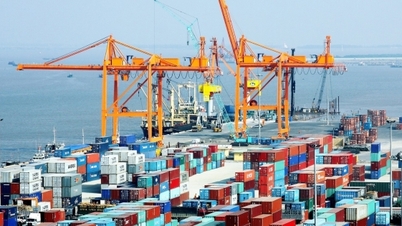






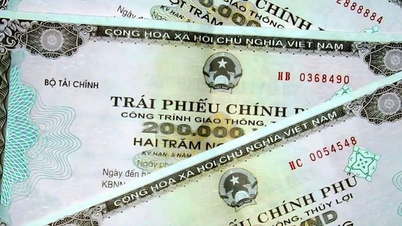

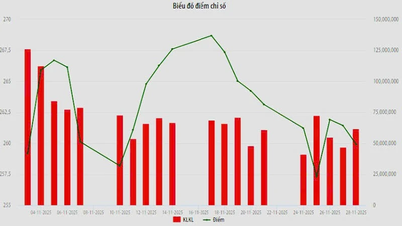


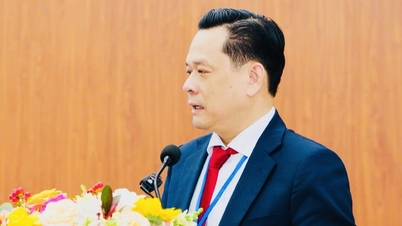





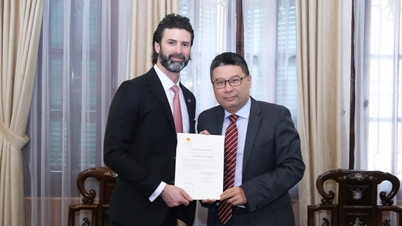



















































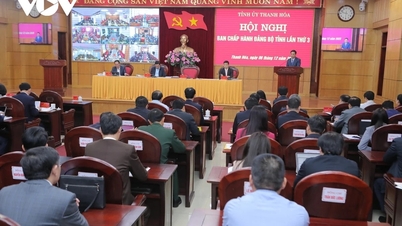






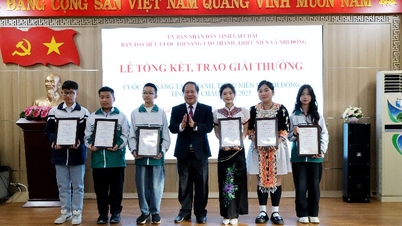



















Comment (0)